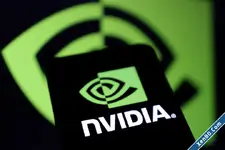Nvidia is planning to release a simpler version of its AI chip called H20 for China within the next two months. This is due to new U.S. government rules that prevent Nvidia from selling the original, more powerful version of the chip there.
The company has already told its big Chinese customers, like major cloud service providers, that the new, less advanced H20 will be available around July. This change is Nvidia’s way of staying involved in the Chinese market, which is very important to them. China made up about 13% of Nvidia’s total sales last year, or $17 billion.
The original H20 was Nvidia’s best AI chip clear for sale in China, but last month U.S. officials said they needed special approval for exports of that model. So Nvidia is working on a new version with lower technical standards, including less memory, making it less powerful. Some customers may even be able to tweak the new chips to adjust their performance.
Nvidia hasn’t commented publicly on this plan. The U.S. Department of Commerce also hasn’t responded to questions.

Despite these restrictions, Chinese companies like Tencent, Alibaba, and ByteDance (which owns TikTok) have been buying more of Nvidia’s chips, especially because they are looking for cheaper ways to develop AI tools. Since the beginning of this year, Nvidia has received orders worth about $18 billion for the H20 chip.
Recently, Nvidia’s CEO Jensen Huang visited Beijing, highlighting how important China is to the company’s future plans, especially after new export rules were announced.
The company has already told its big Chinese customers, like major cloud service providers, that the new, less advanced H20 will be available around July. This change is Nvidia’s way of staying involved in the Chinese market, which is very important to them. China made up about 13% of Nvidia’s total sales last year, or $17 billion.
The original H20 was Nvidia’s best AI chip clear for sale in China, but last month U.S. officials said they needed special approval for exports of that model. So Nvidia is working on a new version with lower technical standards, including less memory, making it less powerful. Some customers may even be able to tweak the new chips to adjust their performance.
Nvidia hasn’t commented publicly on this plan. The U.S. Department of Commerce also hasn’t responded to questions.

Despite these restrictions, Chinese companies like Tencent, Alibaba, and ByteDance (which owns TikTok) have been buying more of Nvidia’s chips, especially because they are looking for cheaper ways to develop AI tools. Since the beginning of this year, Nvidia has received orders worth about $18 billion for the H20 chip.
Recently, Nvidia’s CEO Jensen Huang visited Beijing, highlighting how important China is to the company’s future plans, especially after new export rules were announced.
